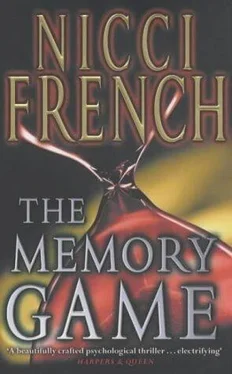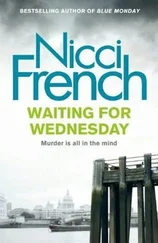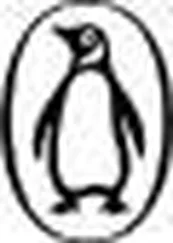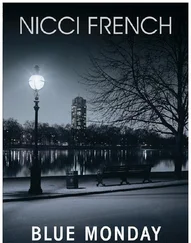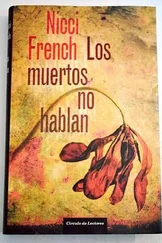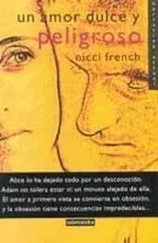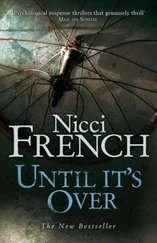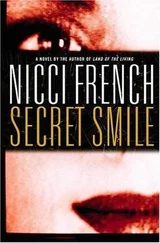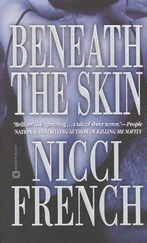Nicci French - The Memory Game
Здесь есть возможность читать онлайн «Nicci French - The Memory Game» весь текст электронной книги совершенно бесплатно (целиком полную версию без сокращений). В некоторых случаях можно слушать аудио, скачать через торрент в формате fb2 и присутствует краткое содержание. Жанр: Триллер, на английском языке. Описание произведения, (предисловие) а так же отзывы посетителей доступны на портале библиотеки ЛибКат.
- Название:The Memory Game
- Автор:
- Жанр:
- Год:неизвестен
- ISBN:нет данных
- Рейтинг книги:4 / 5. Голосов: 1
-
Избранное:Добавить в избранное
- Отзывы:
-
Ваша оценка:
- 80
- 1
- 2
- 3
- 4
- 5
The Memory Game: краткое содержание, описание и аннотация
Предлагаем к чтению аннотацию, описание, краткое содержание или предисловие (зависит от того, что написал сам автор книги «The Memory Game»). Если вы не нашли необходимую информацию о книге — напишите в комментариях, мы постараемся отыскать её.
The Memory Game — читать онлайн бесплатно полную книгу (весь текст) целиком
Ниже представлен текст книги, разбитый по страницам. Система сохранения места последней прочитанной страницы, позволяет с удобством читать онлайн бесплатно книгу «The Memory Game», без необходимости каждый раз заново искать на чём Вы остановились. Поставьте закладку, и сможете в любой момент перейти на страницу, на которой закончили чтение.
Интервал:
Закладка:
I said I had realised that I was profoundly unhappy, and that after a few false starts (I offered up my first aborted attempt at analysis but didn’t mention the one-night stand with William), I had started therapy with Alex Dermot-Brown.
‘What did you want from therapy?’ Caspar enquired.
‘Some kind of control over my life, I guess. I felt I was in a mess and didn’t really know how to get out of it. Later, it became more of a search for the truth about my past.’
‘That’s a big thing to search for,’ said Caspar mildly.
I tried to tell him about the therapy, but that was more difficult; the illuminations I’d received on the couch slipped away from me, like beads of mercury under the press of a finger.
‘He helped me find a narrative to my life,’ I said ineptly, echoing what Alex had once said to me.
‘I’ve always thought,’ responded Caspar, ‘that the great appeal of psychoanalysis is that it enables us to tell the story of our own life.’
I couldn’t tell whether he was criticising or complimenting me – probably neither.
‘It’s hard to talk about it now; it’s weirdly hard to remember it as a chronology,’ I admitted. ‘It’s more like a kind of space, where I explored myself. I don’t know if I’ll continue with it, though – I don’t know what it would be for. Also’ – the wine bar was filling up now; I had to raise my voice against the hum and chink of a day ending – ‘also, it’s quite scary. I mean, I never really thought before how much pain people can carry around with them and still cope. And I’m still not sure whether dredging up memories and re-opening wounds is always right. Sometimes, horror should be left buried.’ I shuddered. ‘Not in my case, of course. But I think some things don’t need to be explained. And sometimes damage should be left in sealed containers, like nuclear waste. That’s heresy to therapists, of course. Except sceptical ones like Alex.’
‘I’m glad you’re sceptical too,’ said Caspar. ‘And I’m glad that you haven’t used the word empower.’
I laughed. Then I told him about the group I’d been to, and he didn’t say anything at all.
‘There, that takes us up to now. And now you know about a hundred times more about my life than I know about yours.’ I felt suddenly and dazedly self-conscious, as if the lights had gone on in the cinema.
‘My time will come,’ he said, and beckoned the waiter. ‘Can I have the bill, please?’ He pulled on his gloves. ‘I’ve got to get home to Fanny now,’ he said. ‘She talks about you, by the way.’
We left together. ‘Will you be all right?’ he asked.
‘Yes,’ I replied, for I thought I probably would be.
‘And will you call me?’
‘Yes, I will. This time I really will.’
‘Goodbye, then.’
‘Goodbye, Caspar. Thank you.’
For a moment I thought he would touch me, but he didn’t and I was glad.
Thirty-Four
One evening, Claud dropped off my box from the Stead on the way home from work. He hovered a bit on the doorstep. He didn’t ask, but I could tell that he wanted to be invited in for a drink or dinner or to live with me again. I held firm on every count. This wasn’t an evening for dealing with things like that. I wanted to go through this box on my own. Claud talked about what things were like up at the Stead now that Jonah was getting rid of everything and preparing for the house to be sold. I listened but didn’t ask questions and scarcely responded. After a few minutes the conversation slowed and I was still standing resolutely in the quarter-opened door. He looked crestfallen and said he supposed he had better be going and I said thanks for bringing the box round and he looked even more crestfallen and mumbled something. I didn’t ask what it was he had said and he looked downright self-pitying and walked off.
The brothers had lived at the Stead, of course, but Paul and I used to go there only at intervals, so we had our boxes. Martha and Alan had given them to us when we were small. They were packing cases with lids and they were for the possessions we had at the Stead, the things we put away at the end of the summer when we returned to the world and the boxes were stowed away in the loft. The first thing we would do when we came back from the world at the end of the following July, would be to run up and retrieve our boxes and extract the things that had got smaller because we had got bigger.
The sight of the box was incongruous, almost indecent. It belonged in the Stead, in my past, and now it had been dumped on my doorstep by my ex-husband. When I tried to pick it up, I almost regretted not asking Claud in. My arms are too short to go around a packing case, so I had to drag it down the hall, making a sound like a fingernail on a window-pane and leaving a dusty white line that I suspected was now a permanent feature. I got it as far as the kitchen and parked it by the table.
This was going to take time. I needed to be prepared, so I fixed myself a gin and tonic, took a fresh packet of cigarettes from a duty-free carton of Marlboro that Duncan had tolerantly bought me the previous week, lit the first and opened the box. It wasn’t quite like the boxes that I still have up in my own attic. There weren’t the bundles of old letters tied with ribbon, the old reports, the student cards, essays, certificates, school photos. It wasn’t a life. These were the fragments of the bits in between my life.
I lifted out some old books, The Little White Horse, Anne of Green Gables, Pride and Prejudice, Little Women, Kim and some old Look and Learns, each of which I wanted to read through immediately but put aside for another evening. There were some utterly useless objects: old pens, batteries, flattened out tubes of glue, single earrings, lipstick tubes without lipstick. Why hadn’t I thrown them into the bin? Lots of oddities. A heart-shaped box full of cotton wool. What had it contained? Combs. A heavy painted stone, which I decided I would use as a paperweight. A funny little earthenware dish with a picture of a monkey. I’d forgotten all about that. I could use it for paper-clips, perhaps. Some old cassette tapes. I tossed a couple of pocket guidebooks to Greece and Italy straight into the bin. I’d bought the Greece guidebook and never got around to the actual holiday.
Right at the bottom was a stratum of old notebooks. All of us, but especially Natalie and I, used to write and write, especially in those bits of summers that we suppress in later years, the times when it rained for day after day and we knocked around the echoey house. I took a cursory look through the books, the faded old drawings and stories, games of hangman and ghosts, doodles and letters. And the diaries that I used to keep almost every year. A thought struck me and I rummaged around until I found a dull red exercise book inscribed, ‘J. Crane. Journal. 1969’. I flicked through until I reached the last of the biroed pages. It was useless of course. There was no entry for the day after the party or even for the day of the party itself. Life had become too big, too emotional, to be written about in a diary. What had I felt and done in those last golden days? I turned back a couple of pages and read:
24 July
Theo Theodosius!! Natalie is being completely tedious and won’t talk to me, Paul is moaning all over the place, don’t know what’s got into him, Fred and Jonah are totally childish, Claud has been driven round the bend by organising the whole party and he looks ill and he says that he doesn’t know where the tent will go and who will put it up and whose idea it was to have the barbecue – on which everything depends – built virtually as the party’s about to start, and can anybody get in touch with Alan and Martha if there’s an emergency and he (Claud) looks completely ill. And Luke is hanging around looking miserable and Mum and Dad aren’t exactly in the pink either. With all this chaos, and everyone having nervous breakdowns, I feel more wonderful than I’ve ever felt in my whole life. It’s all starting, and it’s wonderful. As I’m writing this, it’s very late at night (Natalie is asleep – she looked really awful this evening but if she’s not going to be nice to me then I’m not going to bother about her). I’m holding a torch over the page and I’m so excited I can hardly hold my pen straight.
Читать дальшеИнтервал:
Закладка:
Похожие книги на «The Memory Game»
Представляем Вашему вниманию похожие книги на «The Memory Game» списком для выбора. Мы отобрали схожую по названию и смыслу литературу в надежде предоставить читателям больше вариантов отыскать новые, интересные, ещё непрочитанные произведения.
Обсуждение, отзывы о книге «The Memory Game» и просто собственные мнения читателей. Оставьте ваши комментарии, напишите, что Вы думаете о произведении, его смысле или главных героях. Укажите что конкретно понравилось, а что нет, и почему Вы так считаете.
